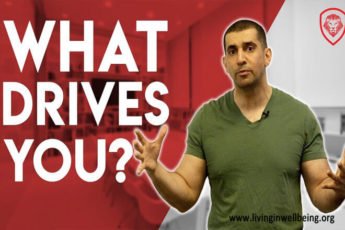
If you've ever gobbled up a candy bar right before a big meeting with the boss, or spooned your way to the bottom of a pint of ice cream after a bad breakup, then you're familiar with emotional eating. Letting your feelings--instead of hunger--dictate when, what and how much you eat can be very dangerous, especially if you're watching your weight. So what does it take to put an end to emotional eating? Adrian Brown, Ph.D., a psychiatrist in private practice in Washington, D.C., and associate clinical professor of psychiatry at Georgetown University Medical Center, offers her insight and some helpful advice.
Best Life: What is emotional eating?
Adrian Brown: Emotional eating occurs when feelings other than hunger rule our food choices. They can be negative feelings, like anger, frustration, loneliness, or boredom, or positive ones like joy, contentment or excitement. And, of course, we're talking about unhealthy food. It's not like someone says, "My boss is such a pain. Where are those carrot sticks?"
BL: Why is it so hard to stop emotional eating?
Brown: If you're trying to get down to a healthy weight, you face many obstacles right from the start: There is an overabundance of delicious, cheap and fattening food, and you don't even have to move to get it. Then there's the fact that so many of our social interactions are centered around food. When you throw in your emotions, which many of us aren't even aware of, it becomes even more difficult to stick to a healthy-eating plan.
BL: What kind of emotions can trigger eating?
Brown: One of the interesting things about emotional eating is that it can be caused by both positive and negative emotions. Eating can be a way to reward yourself (I'm going to have a drink because I finally finished my presentation) or comfort yourself (I had a hard day, I deserve this sundae), or a way to celebrate (It's my sister's birthday so I have to have a piece of cake).
BL: How can dieters determine which emotions drive them to eat?
Brown: My first suggestion would be to keep a detailed food log. Studies show we have a hard time remembering what we ate, so be sure to make a note every time you eat--not only what you had, but also when and how you were feeling at the time. For many people, a food log makes it immediately clear what's driving them to eat. Once you figure out your trigger, you can come up with better ways to deal with it. For example, maybe you realize that you overdo it when you're lonely. Plan ahead so you don't have so much down time: Make a walking date with friends, go see a movie or buy yourself a good book. Then, you won't feel the need to turn to food to fill your time.
BL: What else can you do to curb emotional eating?
Brown: Many of my patients have had success with positive self-talk. Here's how you can use it: The next time your stress levels soar and you find yourself en route to the vending machine, try to reason with yourself. Say, "If I eat that bag of candy or chips, I'm going to feel good for a few minutes, but then I will feel guilty, disappointed and frustrated. If I can deny this craving, it will hurt for a little while, but I am strong. It won't kill me. When the feeling passes and I return to my desk empty-handed, I will feel really good and happy. My confidence will improve, and I will feel that I have control of my weight and health." Basically, you have to remind yourself that it's OK to feel a little deprived because you've forbidden yourself from having something. It's better than the alternative: Feeling discouraged and hopeless because you can't follow through on your resolutions. Trust me, it gets easier to say no to tempting foods once you get used to the feel of success.
Also, try to reframe the situation. Many dieters view food and weight loss as a black-and-white issue. For example, say you eat after 8 pm. You might reason, 'Oh, well, I blew it. Now I might as well eat whatever I want.' But if you think about it, that kind of thinking makes no sense. Remind yourself that you're not perfect. So what, you had a little slip? There's no need to make it any worse. Go to bed or take a walk and then get back on the plan in the morning.
Finally, I recommend jotting down the reasons you want to lose weight on a small piece of paper that you can carry around with you in your purse or wallet. Whenever you start a weight-loss plan, your resolve and motivation are high, but as time goes by, and you're continually tempted by brownies and tested by ice cream, they both go right out the window. So jot down a quick list of five things (I want to be around to see my grandkids; I want to look nice at my son's wedding; I want to have enough energy to keep up with my children) and refer to it whenever you need. It will serve as a powerful reminder and give you enough strength to overcome any emotionally driven craving.












